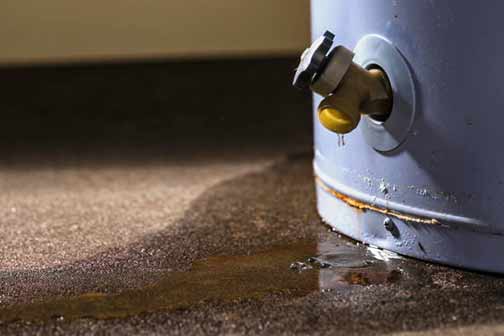
Water heater issues in your home can be super-annoying because they always seem to happen when you need hot water urgently and don’t have the time to fix the problems. However, Vacation Los Cabos Management says, water heater problems rarely occur suddenly; they almost always give you an early warning sign.
But most homeowners don’t see the signs. Even when they notice signs of an impending water heater issue, they tend to underestimate the problem. The truth is you can stop water heater emergencies in your home if you can understand the early warning signs of the problem.
Below, we explain the different reasons why a water heater does not produce hot water at all or does not produce enough hot water. If you cannot solve any of these highlighted issues, please talk to a qualified professional.
No hot water
The possible causes of this problem are:
- Tripped circuit breaker: If the circuit breaker has tripped or a fuse has blown, you can fix the problem by resetting the circuit breaker or replacing the fuse. If the issue happens again, there could be a problem with your wiring.
- The pilot light is off: Gas-powered water heaters have a pilot light, which ignites the burner to enable the appliance to heat water. If the pilot light is off, you need to relight it. The steps for doing this can be found on the body of the water heater or the manufacturer’s website.
- Gas leaks: A leaking gas line may interfere with the normal operation of your water heater. If you smell gas inside your home, turn off the water heater and call the gas company at once. Do not try to fix gas leaks by yourself. You may need to wait outside until the technician arrives.
- Blocked vents: A gas water heater will not heat water properly if the vents are blocked. This is because exhaust gases need to be expelled before there can be proper combustion. In addition to this dangerous buildup of toxic fumes, the water heater can overheat.
- Faulty heating element: In electric water heaters, if the heating element malfunctions, the water heater will not work properly or work at all. The owner’s manual contains the steps for checking if the heating element is damaged. You will need a multimeter for this step.
- Damaged TPR valve: The temperature and pressure release valve regulates temperature and pressure inside the water heater tank. If temperature and pressure spike, the valve will open to stop the tank from exploding. But if the TPR valve fails, your water heater may stop working. A licensed plumber can check the status of the TPR valve.
- Malfunctioning thermostat: The thermostat plays the role of making sure the water heater heats water to the right temperature. If the thermostat stops working, the water will be too hot or cold. It is also possible that the thermostat is fine but is not set properly.
The water heater is noisy
If your water heater makes hissing, popping, and banging sounds, these are the possible causes:
- Sediment buildup: Scale buildup and other debris inside the water heater tank will make it overheat. An overheated water heater will sometimes make a loud hissing sound. The excessive heat inside the tank can also produce banging noises.
- Loose parts: Parts in a water heater that can become loose include pipe fittings, the drain valve, the TPR valve, and the heating element. To determine if this is the problem, the water heater should be inspected by a plumber. Any loose parts found should be tightened.
- Restricted water flow: This is usually caused by sediments inside the water heater tank. A partially closed shut-off valve can also restrict water flow. The average homeowner may find it hard to detect this problem. Calling a professional plumber is recommended.
The water heater is leaking
Common water heater leaks include:
- Leaky tank: This is the most severe type of water heater leak because a leaking water heater tank should not be repaired. If the tank is leaking, it is best to replace the water heater.
- Leaky TPR or drain valve: The drain valve at the bottom of the tank and the TPR valve at the top are favorite locations for leaks. Valve leaks can be solved by replacing faulty valves or tightening/sealing the valve entry point.
- Water pipes are leaking: The hot or cold water supply lines may also leak. Leaking or burst pipes should be repaired or replaced. If pipe joints are the problem, they should be sealed properly, or if this solution does not work, the joint should be replaced.
Lastly, some of these problems are caused by an aging water heater. If your water heater is old, replacing it is the only option. A good plumber is an asset when buying a new water heater; they can provide valuable insights to ensure you buy the best water heater for your home.

